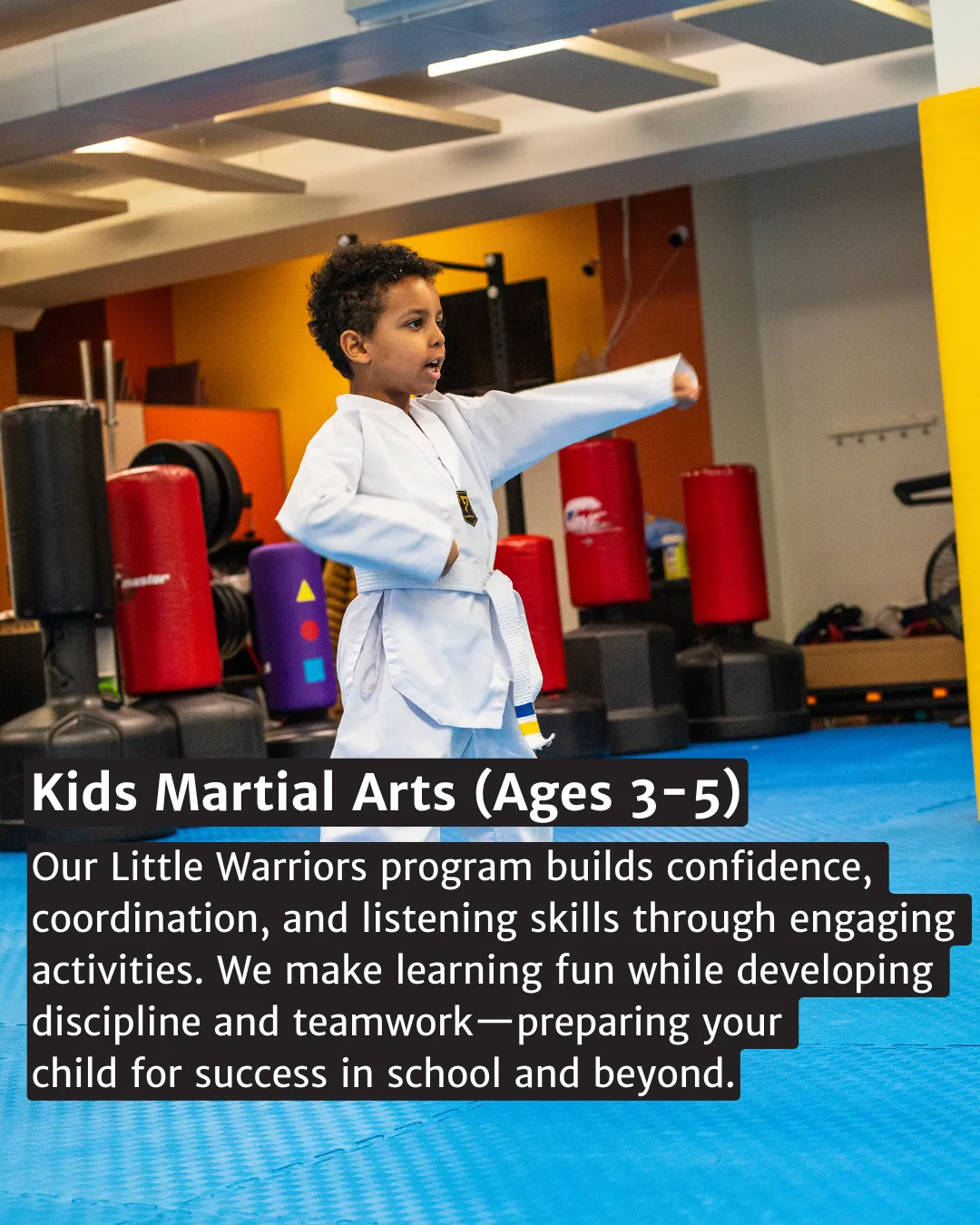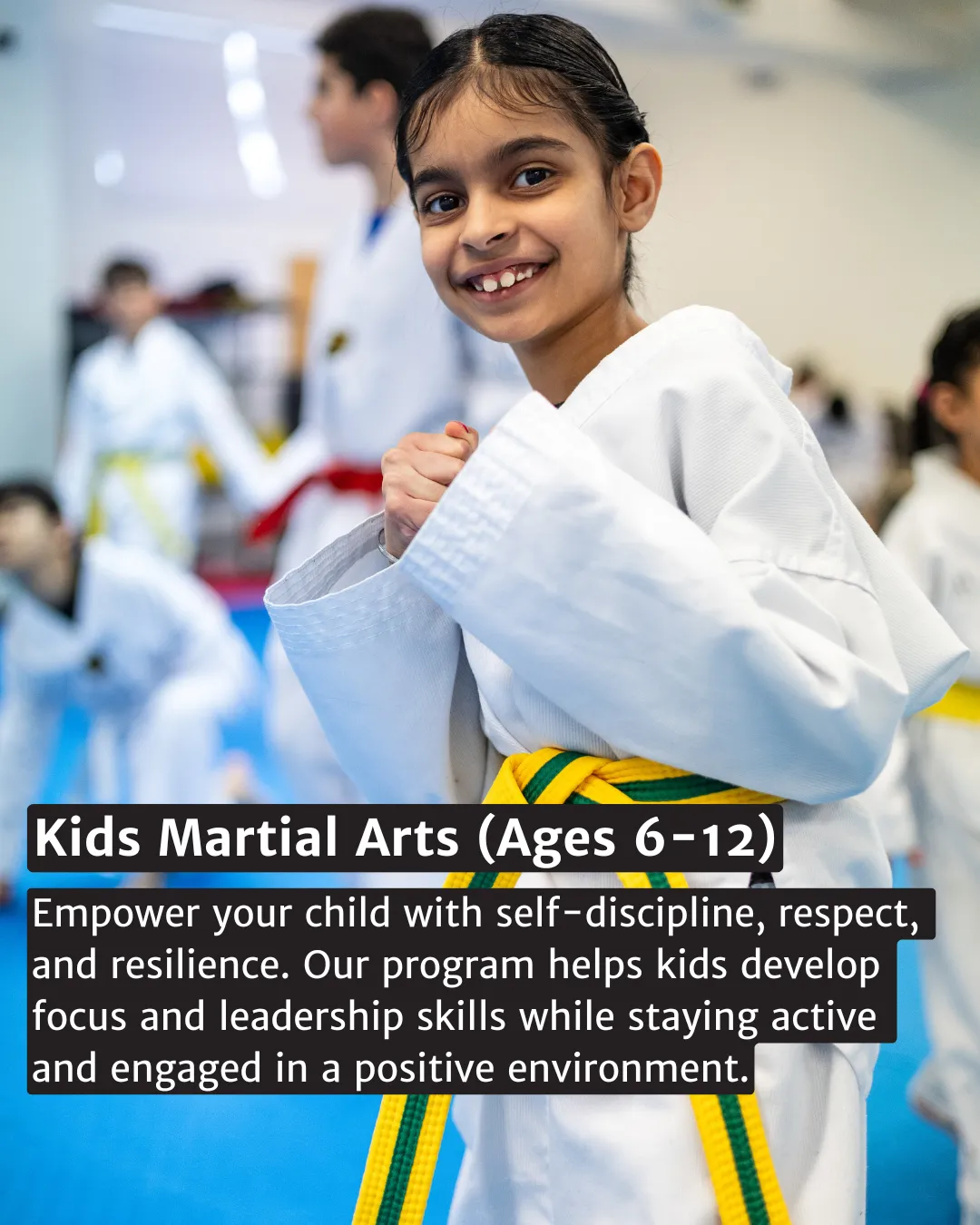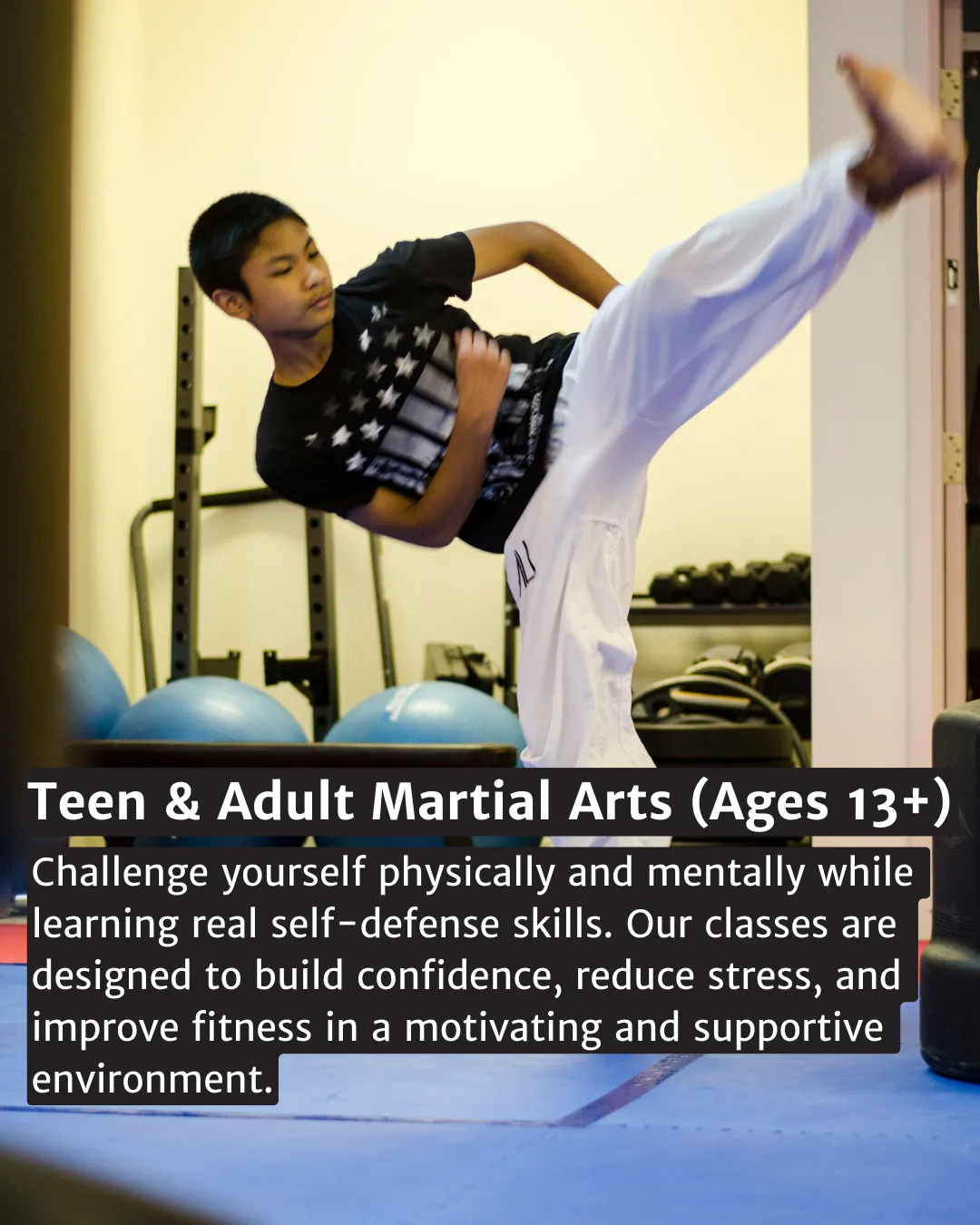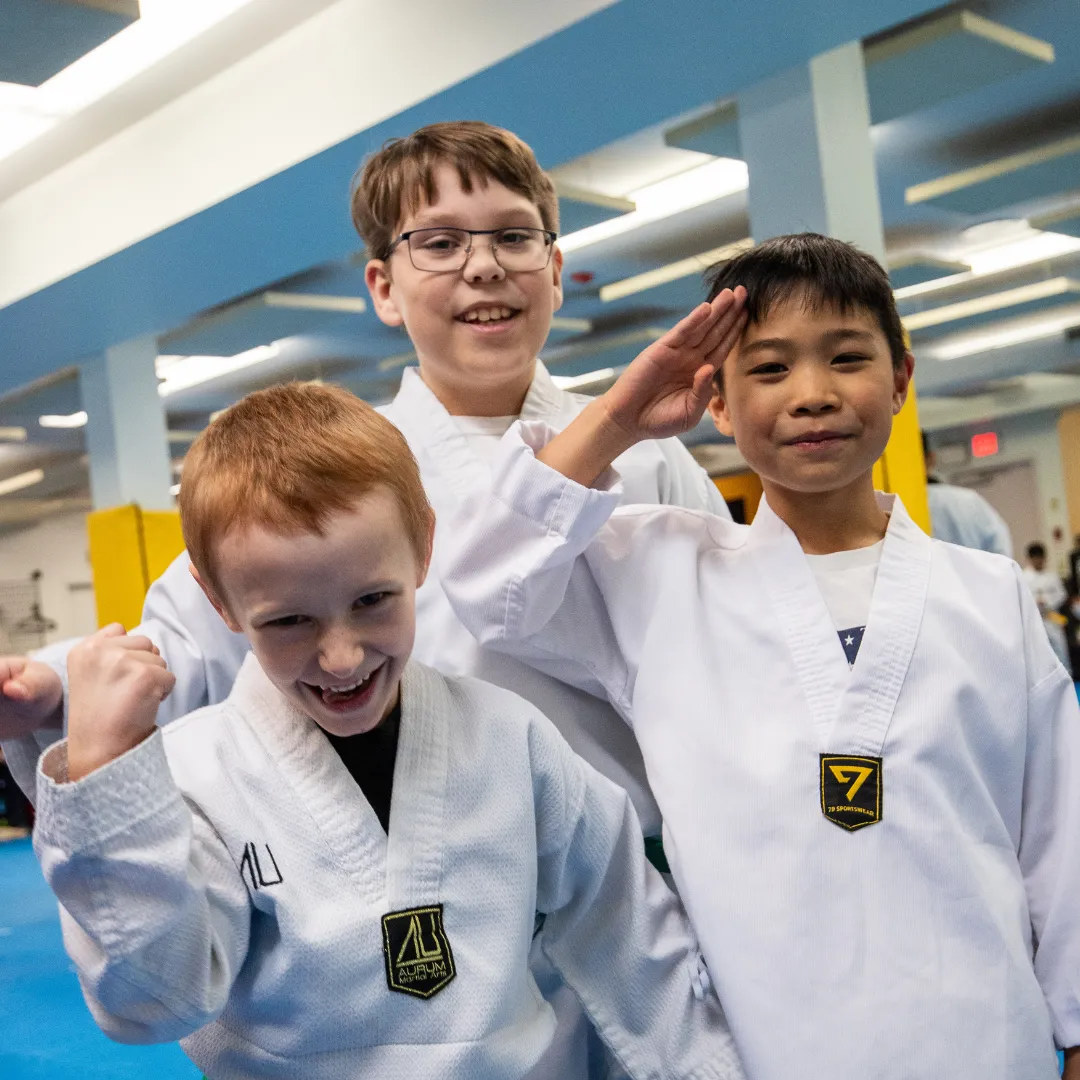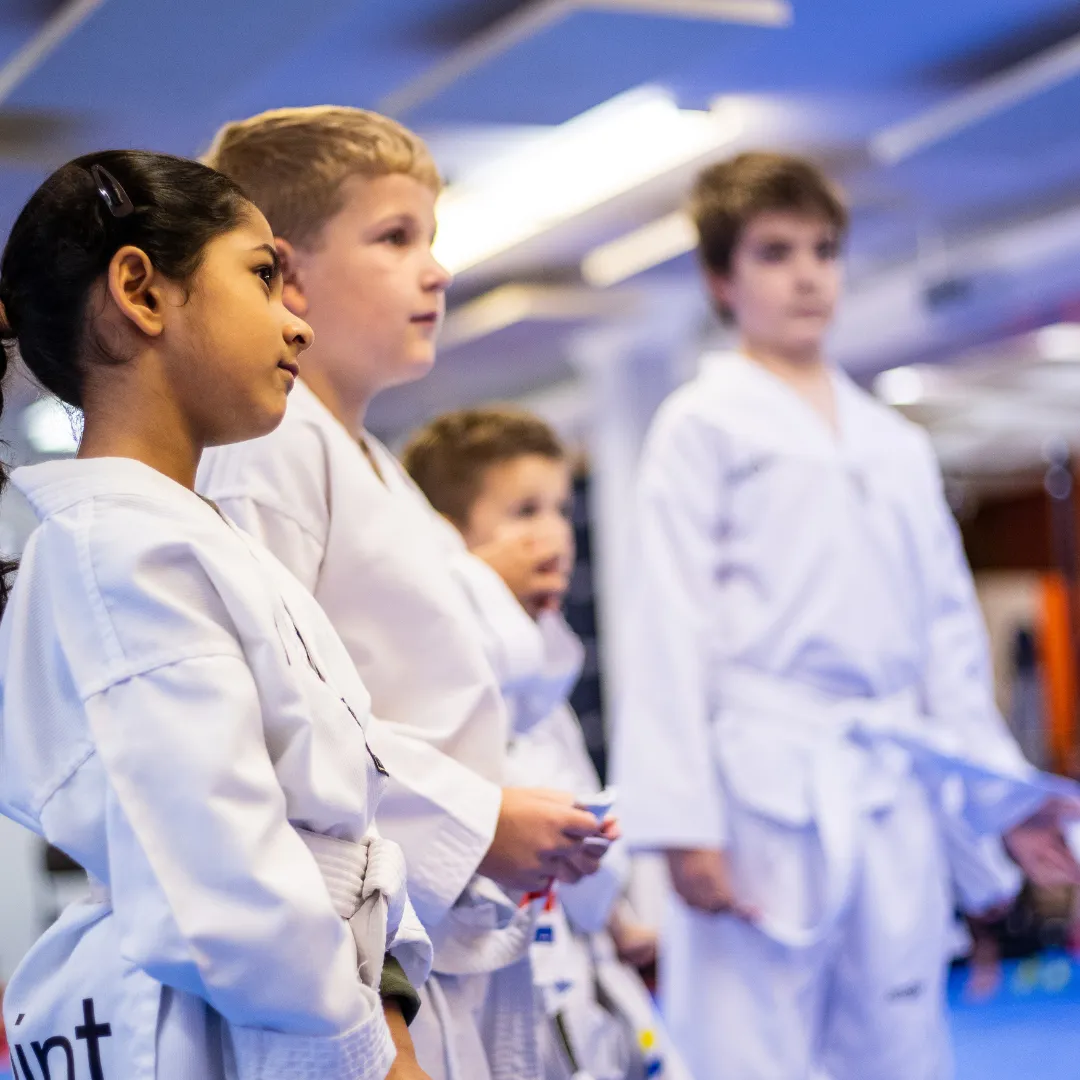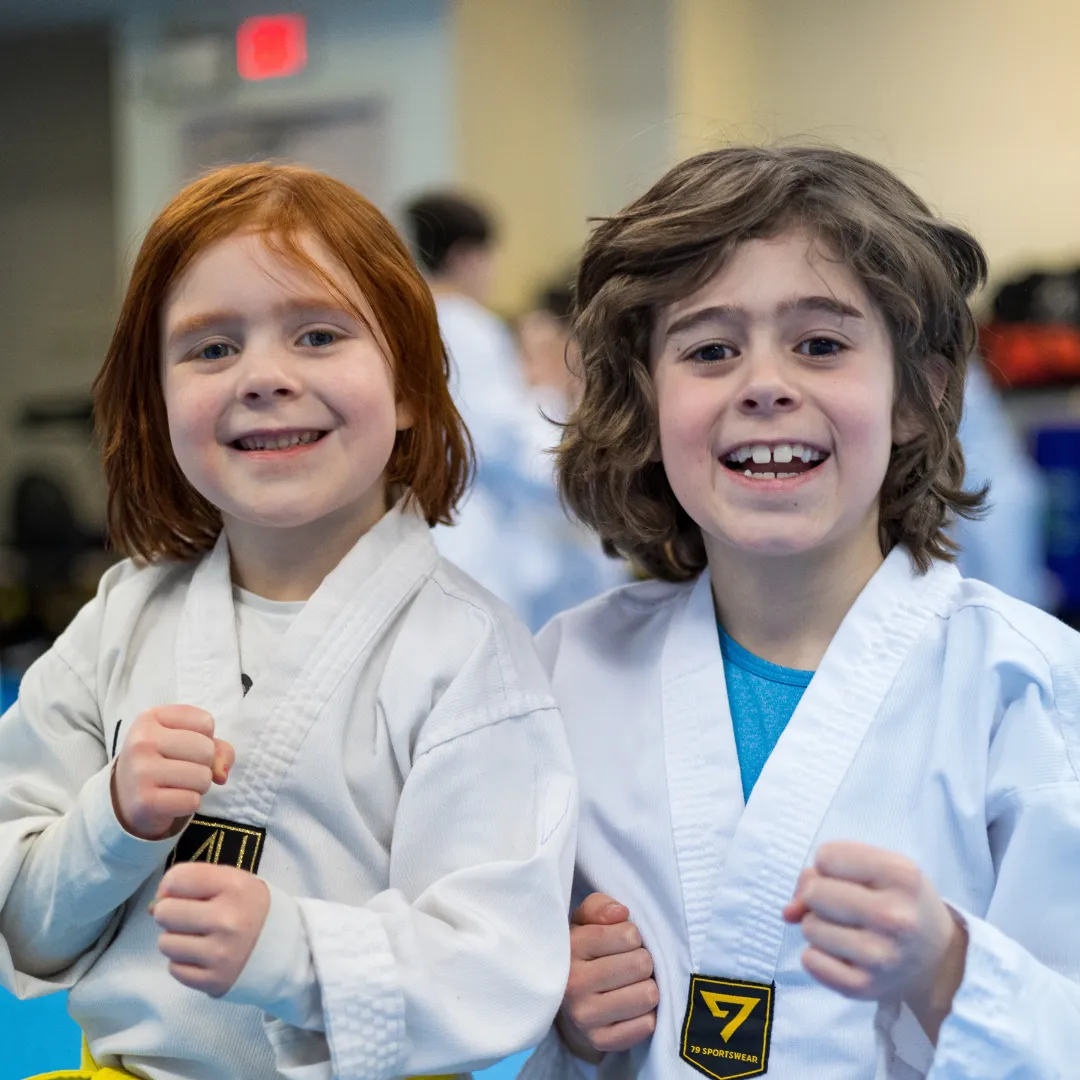4Point Taekwondo, Edmonton CA
Martial Arts for Families
in Edmonton
Strengthen your child’s confidence, focus, and resilience – and join them on the journey
Exclusive Online Deal!
Start your FREE trial today and discover our
flexible class schedule and pricing!
Claim your spot today and unlock a special offer!
Exclusive Online Deal!
Start your FREE trial today and discover
our flexible class schedule and pricing!
Claim your spot today and unlock a special offer!
BOOST YOUR CHILD'S FITNESS WITH TAEKWONDO!
GROW STRONGER TOGETHER!
At 4Point Taekwondo, fitness and growth are a family affair. Our classes are designed to help kids build confidence and discipline while giving parents the opportunity to train alongside them. Strengthen your bonds while staying active and having fun!
LEAD WITH CONFIDENCE!
The kids martial arts program at 4Point is about more than just physical skills. We focus on building future leaders by teaching courage, perseverance, and respect. Whether your child is shy or full of energy, our programs help them find their voice and lead with confidence in and out of class.
INVEST IN YOUR CHILD’S FUTURE!
Every class is an opportunity to instill valuable life
skills that last a lifetime. Our programs develop focus, discipline, and resilience, helping kids succeed at school, at home, and in their communities. The best investment you can make is in your child’s growth and character.
BOOST YOUR CHILD'S FITNESS WITH TAEKWONDO!
GROW STRONGER TOGETHER!
At 4Point Taekwondo, fitness and growth are a family affair. Our classes are designed to help kids build confidence and discipline while giving parents the opportunity to train alongside them. Strengthen your bonds while staying active and having fun!
LEAD WITH CONFIDENCE!
The kids martial arts program at 4Point is about more than just physical skills. We focus on building future leaders by teaching courage, perseverance, and respect. Whether your child is shy or full of energy, our programs help them find their voice and lead with confidence in and out of class.
INVEST IN YOUR CHILD’S FUTURE!
Every class is an opportunity to instill valuable life
skills that last a lifetime. Our programs develop focus, discipline, and resilience, helping kids succeed at school, at home, and in their communities. The best investment you can make is in your child’s growth and character.
No Contracts. No Fees. No Hidden Costs.
TAEKWONDO WITH INTEGRITY
At 4Point Taekwondo, progress is earned, not bought. That’s why we:
Have no long-term contracts – Your commitment comes from value, not paperwork.
Never charge for promotion tests – Advancement is about skill, not money.
We build strong leaders by focusing on growth, not profits. When your child earns a belt,
it’s because they worked hard and truly deserved it.
Experience martial arts with integrity, fairness, and real achievement.
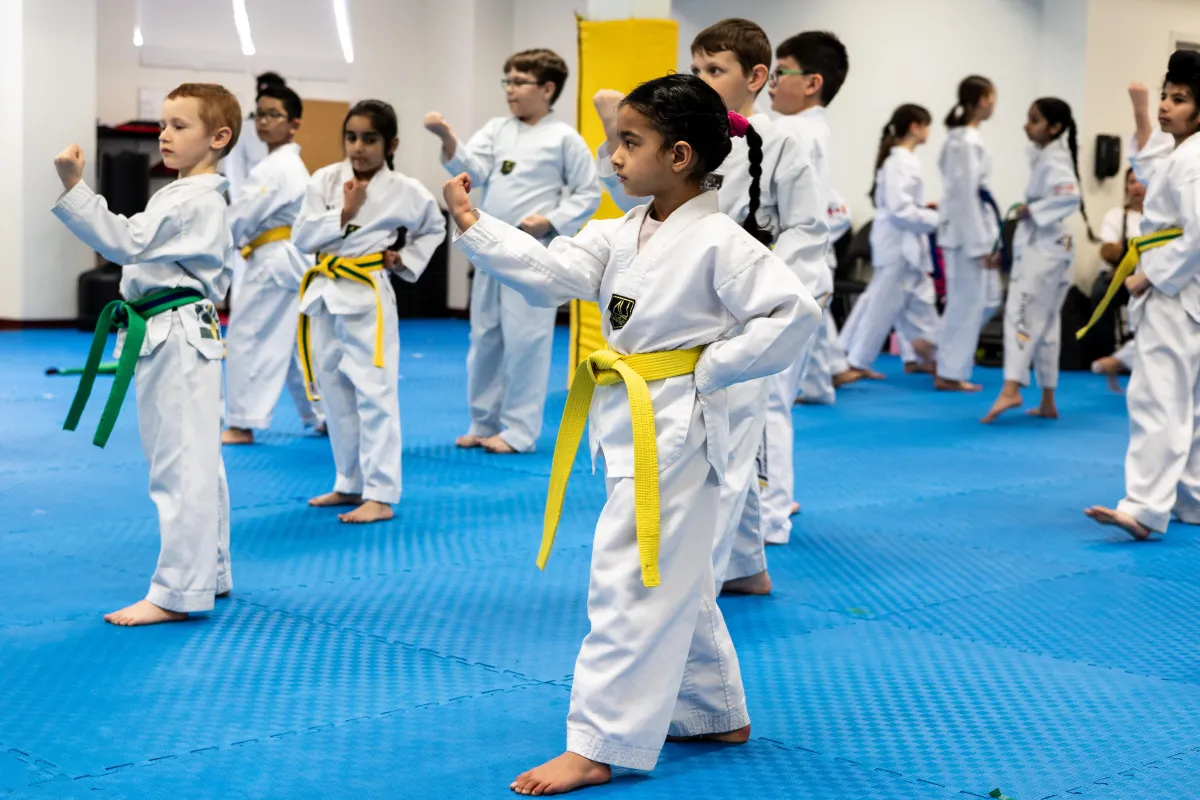
No Contracts. No Fees. No Hidden Costs.
TAEKWONDO WITH INTEGRITY
At 4Point Taekwondo, progress is earned, not bought. That’s why we:
Have no long-term contracts – Your commitment comes from value, not paperwork.
Never charge for promotion tests – Advancement is about skill, not money.
We build strong leaders by focusing on growth, not profits. When your child earns a belt,
it’s because they worked hard and truly deserved it.
Experience martial arts with integrity, fairness, and real achievement.
Parent-Tested & Approved!
Parent-Tested & Approved!
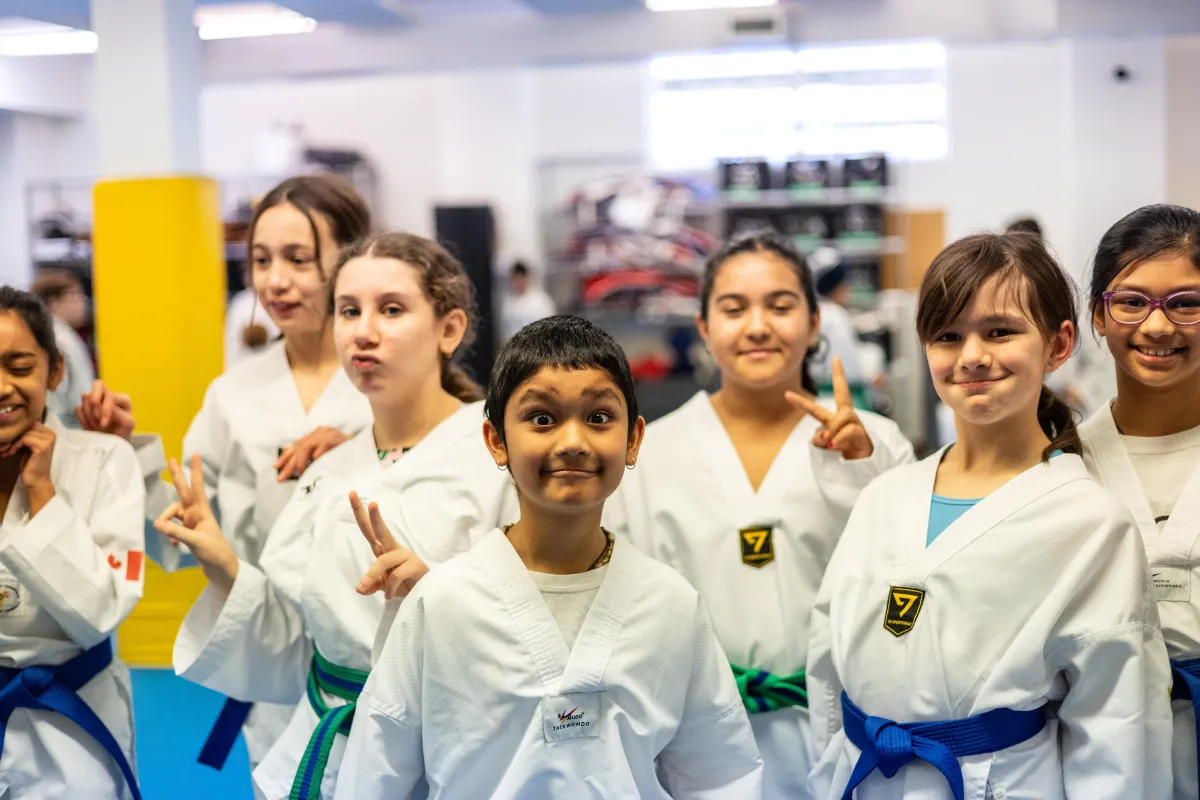
We Get It—Life Is Busy!
FLEXIBLE CLASSES FOR
BUSY FAMILIES
That’s why we make Taekwondo flexible and stress-free.
✔ Miss a class? No worries! Make it up within 3 weeks.
✔ No need to call—just drop into the right class when it suits you.
✔ A steady routine builds progress, but we keep it flexible.
We encourage a regular schedule for consistency but offer flexibility when needed.
At 4Point Taekwondo, we support your family with convenience, ensuring your child
thrives without pressure.
We Get It—Life Is Busy!
FLEXIBLE CLASSES FOR BUSY FAMILIES
That’s why we make Taekwondo flexible and stress-free.
✔ Miss a class? No worries! Make it up within 3 weeks.
✔ No need to call—just drop into the right class when it suits you.
✔ A steady routine builds progress, but we keep it flexible.
We encourage a regular schedule for consistency but offer flexibility when needed.
At 4Point Taekwondo, we support your family with convenience, ensuring your child
thrives without pressure.
Martial Arts & Essential Life Lessons
Recent Blog posts
Find the Perfect Beginner Taekwondo Class for Kids in Edmonton, Canada
Enrolling your child in beginner Taekwondo classes in Edmonton, Canada, can be a fantastic way to foster their physical, mental, and social development. Taekwondo, a Korean martial art known for its high-energy kicks and dynamic movements, offers a structured environment [..]
Edmonton Taekwondo & Martial Arts School | Shaping Confident Kids
Why Taekwondo is the Best Choice for Your Child, Are you looking for an activity that not only keeps your child active but also instills discipline, confidence, and leadership skills? Welcome to Edmonton taekwondo & martial arts, where we’re passionate about shaping the [..]
The Incredible Benefits of Martial Arts for Kids: Boost Confidence and Health
In today’s fast-paced world, finding activities that nurture both the physical and mental well-being of children is crucial. Martial arts stand out as an exceptional choice, offering a myriad of benefits that extend beyond the dojo. From building self-discipline [..]
Martial Arts & Essential Life Lessons
Recent Blog posts
Find the Perfect Beginner Taekwondo Class for Kids in Edmonton, Canada
Enrolling your child in beginner Taekwondo classes in Edmonton, Canada, can be a fantastic way to foster their physical, mental, and social development. Taekwondo, a Korean martial art known for its high-energy kicks and dynamic movements, offers a structured environment [..]
Edmonton Taekwondo & Martial Arts School | Shaping Confident Kids
Why Taekwondo is the Best Choice for Your Child, Are you looking for an activity that not only keeps your child active but also instills discipline, confidence, and leadership skills? Welcome to Edmonton taekwondo & martial arts, where we’re passionate about shaping the [..]
The Incredible Benefits of Martial Arts for Kids: Boost Confidence and Health
In today’s fast-paced world, finding activities that nurture both the physical and mental well-being of children is crucial. Martial arts stand out as an exceptional choice, offering a myriad of benefits that extend beyond the dojo. From building self-discipline [..]
Exclusive Online Deal!
Start your FREE trial today and
discover our flexible class schedule and pricing!
Claim your spot today and unlock a special offer!

Exclusive Online Deal!
Start your FREE trial today and discover
our flexible class schedule and pricing!
Claim your spot today and
unlock a special offer!

© 2025 4POINT TAEKWONDO
